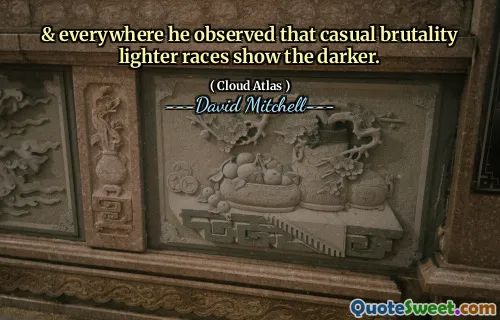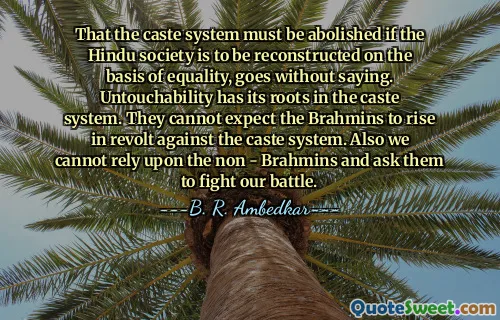
That the caste system must be abolished if the Hindu society is to be reconstructed on the basis of equality, goes without saying. Untouchability has its roots in the caste system. They cannot expect the Brahmins to rise in revolt against the caste system. Also we cannot rely upon the non - Brahmins and ask them to fight our battle.
The quote underscores the pressing need to dismantle the caste system in order to build an equitable and just society. The caste system, rooted deeply in historical and social contexts, perpetuates inequalities and injustices, particularly manifesting through practices like untouchability. It is evident that the system is upheld by those who benefit from its hierarchy, notably the Brahmins, who often hold privileges that resist reform efforts. The assertion that we cannot depend solely on Brahmins to challenge and abolish the system is indicative of the systemic nature of oppression—those who hold power are often unwilling or unable to initiate change. Similarly, relying on non-Brahmins to fight this battle overlooks the collective responsibility required; societal transformation demands active participation from all sections of society. The quote calls for a conscious, collective effort to end caste-based discrimination and to establish a society founded on equality and justice. This involves recognizing the roots of oppression and actively working against ingrained prejudices and structural inequalities. The challenge is formidable because it involves not just changing laws but also transforming mindsets and social attitudes that have been ingrained over generations. Only through a collective and sustained effort to unlearn caste biases and uphold principles of equality can meaningful social reconstruction be achieved, leading to a society where dignity and rights are universally affirmed.











